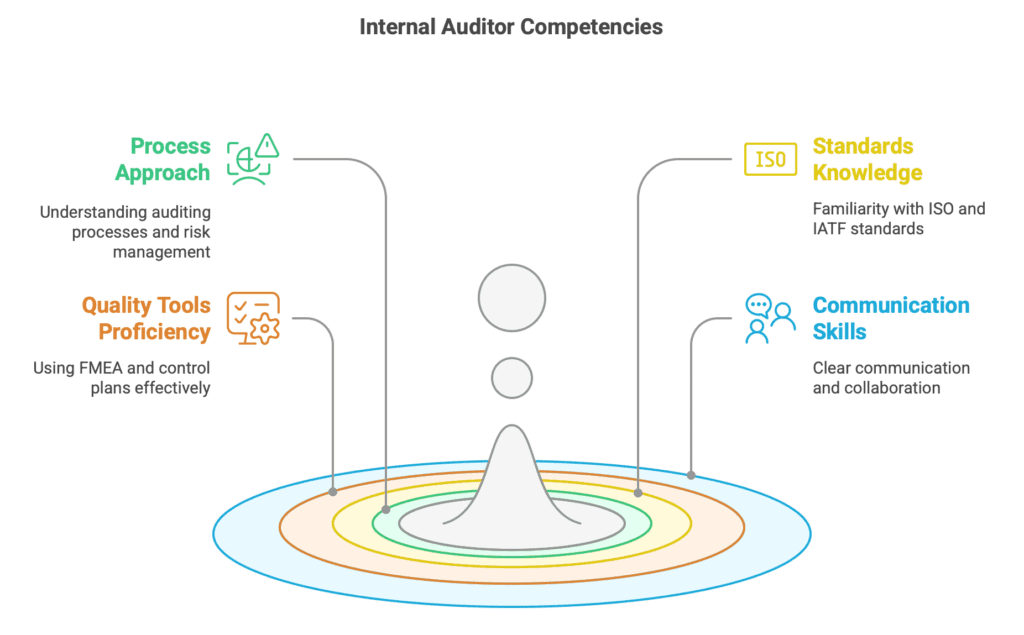In today’s dynamic and demanding industrial environment, maintaining a high level of quality is crucial, especially for companies operating in the automotive industry. Quality management systems (QMS) auditing plays a pivotal role in ensuring that production processes comply with standards and meet customer expectations. In this context, the internal auditor competencies become essential for performing effective and efficient audits.
Verification of Competence
Organizations operating in the automotive industry should have a documented process for verifying the competence of their internal auditors. This process takes into account both the general requirements defined by the organization and the Customer Specific Requirements.
Guidance on auditor competencies can be found in the ISO 19011 norm, providing a valuable reference point for creating effective training programs.
Key Internal Auditor Competencies
Quality management system auditors in the automotive industry should demonstrate several key competencies essential for conducting thorough audits. First and foremost, auditors should have an understanding of the process approach to auditing, including the risk-based approach. This knowledge is crucial in ensuring that production processes are optimized and reliable.

Understanding standards and requirements
Auditors should possess a thorough understanding of the standards and requirements applicable in the automotive industry. This includes familiarity with the ISO 9001 standard, which serves as the foundation for quality management systems.
Additionally, they should be well-versed in customer-specific requirements and the IATF 16949 standard, a specialized standard tailored for the automotive sector. A comprehensive grasp of these requirements enables auditors to prioritize key areas during audits effectively.
Knowledge of quality tools and methods
Auditors should demonstrate proficiency in essential quality tools and methodologies, particularly the “core tools” essential in the automotive industry. This encompasses understanding tools such as FMEA (Failure Mode and Effects Analysis) and the control plan.
Proficiency in these tools empowers auditors to pinpoint areas of risk and concentrate on critical aspects of production processes.
On the “Free quality tools” webpage, you can download the Core tools knowledge test for internal auditors free of charge in an editable Excel format
Communication skills
In addition to technical knowledge, auditors should possess strong communication skills. Effective auditing requires the ability to ask pertinent questions, listen attentively, and communicate findings clearly and precisely. Establishing trust and fostering collaboration with the production team and other stakeholders is essential for successful audits.
Summary of internal auditor competencies
Ensuring high product and production process quality relies heavily on auditors possessing appropriate competencies. By complementing these competencies with necessary technical knowledge and communication abilities, auditors establish a solid foundation for conducting audits effectively.
This enables them to identify areas for improvement, actively contributing to achieving sustainable results and meeting customer expectations in the demanding automotive industry environment.
Dariusz Kowalczyk


